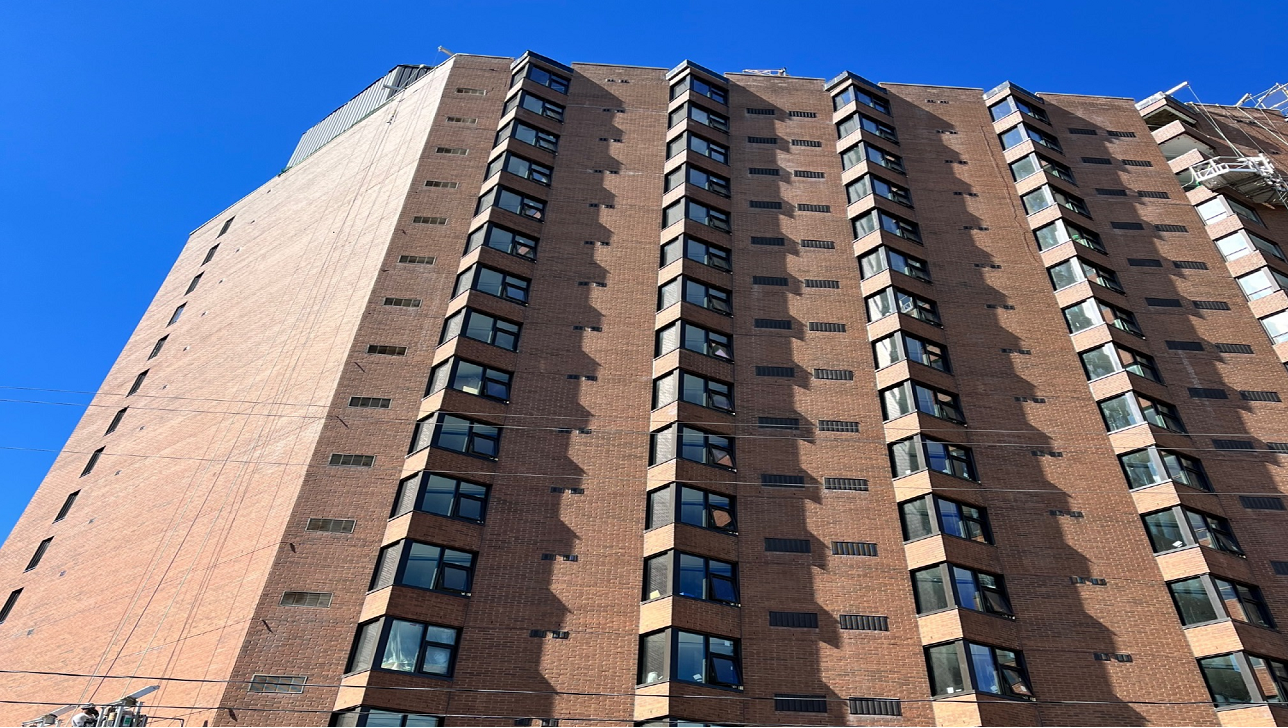- English
- 中文 (Chinese)
- Français (French)
- Deutsch (German)
- 日本語 (Japanese)
- Español (Spanish)
Cost-Effective Multifamily Retrofits for Sustainability, Resilience, and Affordability in Toronto

Around the globe, the real estate sector is facing challenges of advancing both housing affordability and decarbonization. Toronto, Ontario, is one city addressing that challenge head-on.
In February 2020, ULI Toronto, in partnership with the city of Toronto and the Tower Renewal Partnership, hosted a group of North American experts to deliver a comprehensive and actionable set of recommendations on resolving one of the city’s biggest housing and resilience challenges. In supporting Toronto on its tower renewal journey, seven ULI volunteers from across the United States, along with three ULI staff members, traveled to Toronto to take part in four days of site visits and stakeholder interviews to develop their recommendations.
The city of Toronto’s Tower Renewal initiative was designed to upgrade the city’s 1,000-plus apartment towers while maintaining affordability to over a half million Toronto residents. Significant progress is underway to revitalize publicly owned towers, but the challenges facing privately owned buildings (85 percent of the stock) remain steep.
These project profiles highlight the importance of—and business case for—multifamily retrofits to improve sustainability, resilience, and equity, with the goal to educate and provide examples of successful renovations across applicable towers projects. Herein are two examples that met the mission successfully:
- St Hilda’s Towers Inc., a senior living community with affordable housing units that managed to maintain residency and strong community values during the deep renovation
- 6061 Yonge Street, a multifamily tower project that implemented cyclical funding of its renovation from the savings of previously installed energy efficiency projects
The projects showcase strategies for multifamily energy efficiency retrofits that are also cost-effective, minimize displacement, emphasize community communications, and support resilience and affordability.
Related materials:
ULI Toronto: Tower Renewal Check Up: Confronting the Private Sector Rental Affordability Challenge
Author: Kara Kokernak
Résumé de l'étude de cas : Around the globe, the real estate sector is facing challenges of advancing both housing affordability and decarbonization. Toronto, Ontario, is one city addressing that challenge head-on.
In February 2020, ULI Toronto, in partnership with the city of Toronto and the Tower Renewal Partnership, hosted a group of North American experts to deliver a comprehensive and actionable set of recommendations on resolving one of the city’s biggest housing and resilience challenges. In supporting Toronto on its tower renewal journey, seven ULI volunteers from across the United States, along with three ULI staff members, traveled to Toronto to take part in four days of site visits and stakeholder interviews to develop their recommendations.
The city of Toronto’s Tower Renewal initiative was designed to upgrade the city’s 1,000-plus apartment towers while maintaining affordability to over a half million Toronto residents. Significant progress is underway to revitalize publicly owned towers, but the challenges facing privately owned buildings (85 percent of the stock) remain steep.
These project profiles highlight the importance of—and business case for—multifamily retrofits to improve sustainability, resilience, and equity, with the goal to educate and provide examples of successful renovations across applicable towers projects. Herein are two examples that met the mission successfully:
- St Hilda’s Towers Inc., a senior living community with affordable housing units that managed to maintain residency and strong community values during the deep renovation
- 6061 Yonge Street, a multifamily tower project that implemented cyclical funding of its renovation from the savings of previously installed energy efficiency projects
The projects showcase strategies for multifamily energy efficiency retrofits that are also cost-effective, minimize displacement, emphasize community communications, and support resilience and affordability.
Related materials:
ULI Toronto: Tower Renewal Check Up: Confronting the Private Sector Rental Affordability Challenge
Author: Kara Kokernak
UTILISATIONS DES TERRES
- Logement locatif multifamilial
- Logement pour personnes âgées


